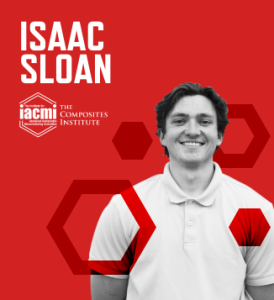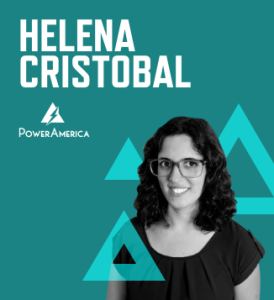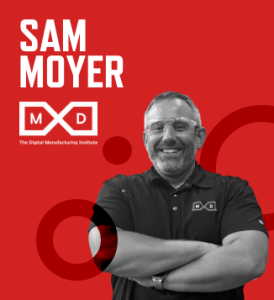
Program leader, biomanufacturing advocate, hockey player
While Gabrielle Mourousas was working as a high school science teacher in Manchester, NH, she became intrigued by what was going on nearby at the Advanced Regenerative Manufacturing Institute (ARMI) and its program, BioFabUSA. BioFabUSA, a Manufacturing USA institute is devoted to advancing the bioeconomy of the country by bringing together good manufacturing processes and the science of regenerative medicine to create regenerative manufacturing.
As she learned more about it, an opportunity arose to become part of the BioFabUSA team, leading BioTrek, a recently launched project-based learning program for students. She jumped at the chance to make a career shift that she felt better aligned with her career goals.
As BioFabUSA’s Lead Educator, Gabrielle has helped manage and grow the highly acclaimed BioTrek program. BioTrek introduces high school and middle school students to biofabrication, the science that enables it, and the careers that will be available to them in this new industry. Gabrielle develops a biomanufacturing curriculum for the entire Education and Workforce Development (EWD) spectrum, often referred to as K-Gray since it spans everything from kindergarten to adult education. She also develops curriculum for teachers in professional workshops, trains new EWD staff, represents BioFabUSA at industry events, and hosts tours at the BioFabUSA facility.
Gabrielle is a leader within her field because she has built relationships with public schools, industry, and colleagues. She leads by example and works to foster an all-encompassing, results-driven mindset, and a culture of continuous improvement for the EWD team at BioFabUSA. Her passion and advocacy for women in manufacturing and new career opportunities for all ages make her a Modern Maker.
Q&A with Gabrielle
How did you find your way to working in advanced manufacturing?
As a former high school science teacher, I am a life-long learner and role model for many. I found my way into advanced manufacturing through networking here in Manchester, NH, as I was curious about what BioFabUSA was doing.
When this amazing opportunity to join the industry was presented to me, I thought, “I want to take this job to show other women that there is a place for them in manufacturing and that it is OK to make a career shift that better aligns with your goals.”

.
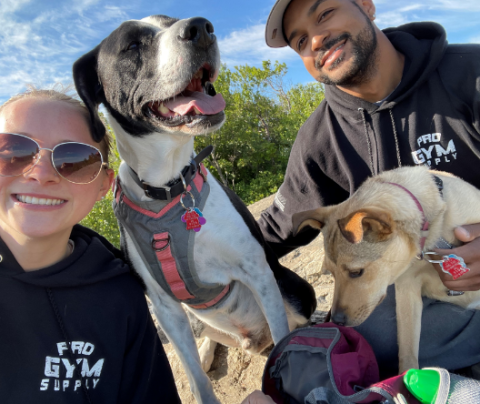
What is the most challenging part of your job?
The most challenging part of my job is effectively reaching and engaging a broad audience. This includes creating educational and workforce opportunities that appeal to a wide range of individuals from various backgrounds and promoting advanced manufacturing workforce initiatives. This pushes me to develop new strategies to connect with different communities, customize our programs to meet diverse needs, and ensure our messaging reaches everyone. We collaborate closely with industry partners, educational institutions, and community organizations. These efforts are incredibly rewarding as we witness increased awareness, engagement, and participation from individuals who might not have otherwise considered a career in biomanufacturing.
What is the best part of your job?
The best part of my job is seeing the excitement on people’s faces as I tell them about the biomanufacturing industry and the advancements happening with regenerative medicine. It’s uplifting to witness the “aha” moments of individuals who are inspired to pursue a career in this industry that they previously didn’t know existed.
What would people be surprised to learn about manufacturing or your role in it?
People typically find it surprising that my role in biomanufacturing focuses on engaging students of all ages, meaning K-Gray, rather than focusing on higher education. This approach informs students at an early age what biomanufacturing is, what careers are in the industry, what transferable skills are needed to be successful, and how students can work on those skills in a positive environment.
What advice do you have for someone new to the industry?
My advice for someone new to the industry would be to get comfortable with networking, stay curious about biomanufacturing topics, and embrace collaborative problem-solving.
If you didn’t have to work, how would you spend your day?
That would depend on the weather. If it’s a rainy day, then I would be curled up on the couch with a good book or TV show. If it’s a sunny day, then I would be taking my two dogs, Roger and Ava, on an adventure.
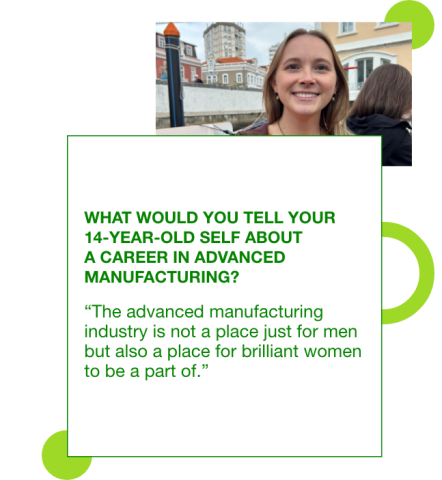
What hobbies make you better at your career?
I am a member of the Toastmasters International Club, which is known for building confidence and teaching public speaking skills through a supportive community. This hobby helps me in my role by giving me a space to build my personal and professional communication and leadership skills. Another hobby that makes me better at my career would be playing ice hockey. Ice hockey allows me to exercise my whole body, increase my mental toughness, and develop decision-making skills. It also helps me maintain a great work-life balance.
How does the work you do impact the world?
The work that I do impacts the world by spreading awareness that the life science industry is manufacturing cost-effective cells, tissues, and organs for research, and life-saving therapies.


